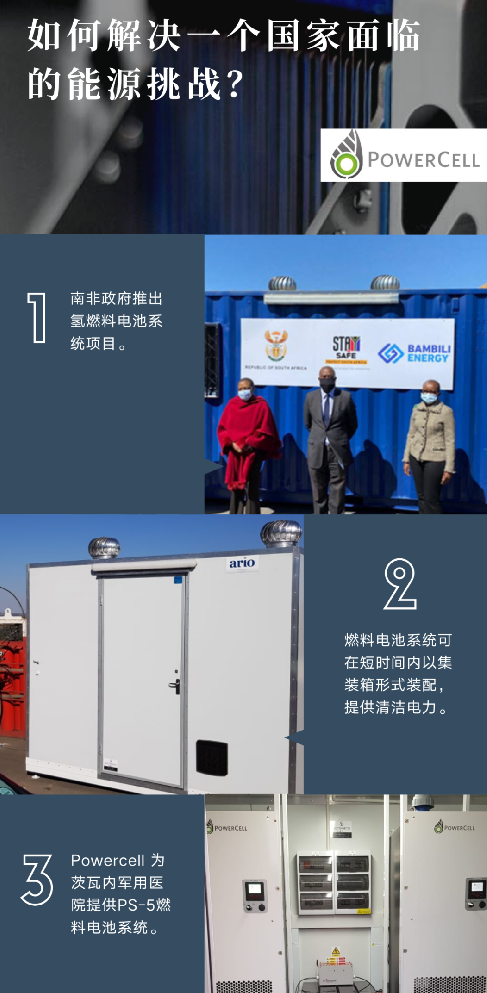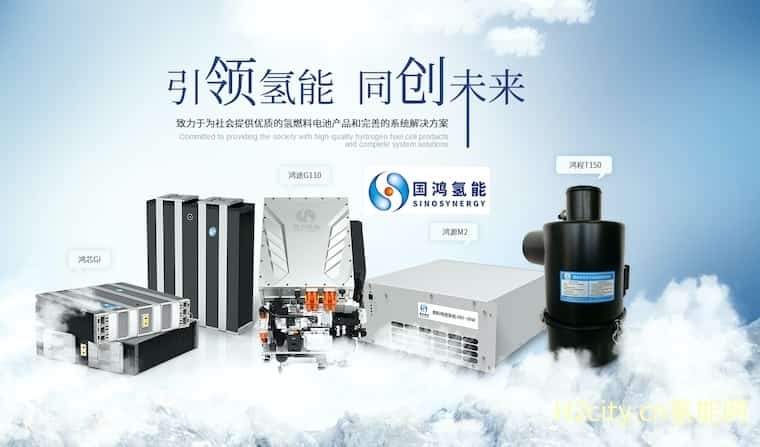
The Department of Science and Innovation yesterday unveiled a hydrogen fuel cell system being used as primary power source for the field hospital at 1 Military Hospital. Picture: Thobile Mathonsi African News Agency (ANA)
Hydrogen fuel cell systems power field facility at 1 Military Hospital
Pretoria - Seven hydrogen fuel cell systems are being used as the primary power source for a field facility located at 1 Military Hospital.
The field hospital was set up as part of response efforts to the pandemic, and the installation of the system means power from Eskom will be used as a back-up or secondary source.
The Military Health Service previously said it would deploy field hospitals at the grounds of 1 Military Hospital as well as in Cape Town and Bloemfontein and the Natal Military Command Centre.
At 1 Military Hospital, five methanol fuel cell systems and two hydrogen fuel cell systems were yesterday unveiled by the stakeholders, which include the Department of Science and Innovation and the Department of Public Works and Infrastructure, the Department of Defence and private companies.
Among the private companies involved are the Bambili Energy Group, Horizon from Singapore, Element One from the US and Sweden’s Powercell.

Five of the fuel cells have been produced by local company Bambili, in a technology partnership with Singapore company Horizon and US enterprise Element One.
Horizon is a specialist fuel cell company while Element One manufactures reformers.
The remaining two fuel cells have been produced in co-operation with Powercell Sweden.
Yesterday stakeholders took a walkabout of the facility boasting the new technology, and said hydrogen fuel cells produce electricity by means of a chemical reaction, using hydrogen as the basic fuel, together with platinum-based catalysts.
Fuel cells are similar to batteries in a lot of ways, using chemical reactions to produce electrical energy.
Unlike batteries, however, fuel cells don’t go dead; as long as a fuel source is available, a fuel cell can continue to produce energy.
Director-general in the Department of Science and Technology Dr Phil Mjwara was also on the tour and said Cabinet first approved the Hydrogen South Africa Strategy in 2007 to combat the challenges of electricity.
He said Covid-19 had highlighted the need to respond with speed and flexibility, particularly in providing high-care facilities for those who needed them most.
“Containerised hydrogen fuel cells can be deployed at short notice to provide a clean source of energy, even when the need is only temporary,” said Mjwara.
He hoped the manufacture of the products in the country would improve the economy. They will be looking into the possibility of exporting them to the rest of the world.
“In addition to it being part of the government’s Covid-19 response, it is also integral to the government’s vision to integrate hydrogen within the economy, motivated by the benefits that will accrue as a result, which include decarbonising the economy,” he said.
Sasol will be donating 10000 litres of methanol and 600kg of hydrogen every month until the end of April next year to help power the field ICU facility at the hospital.
“This is an important initiative for Sasol for many reasons,” said Charlotte Mokoena, executive vice-president for human resources and corporate affairs at Sasol.
Executive chairperson of Bambili Group Zanele Mavuso Mbatha said the advantages of hydrogen fuel cells included their modular nature, and their ability to take a variety of fuel sources from which hydrogen can be extracted, allowing them to be quickly moved to another location.
来源:https://www.iol.co.za/pretoria-news/news/watch-hydrogen-fuel-cell-systems-power-field-facility-at-1-military-hospital-a915fc8d-1d49-4a40-b4af-1990bacf8636?from=singlemessagedaohang.qq.com/?fr=hmpage
平台声明:该文观点仅代表作者本人,氢能网系信息发布平台,我们仅提供信息存储空间服务。























发表评论 取消回复